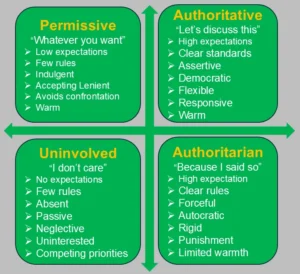Description
Explore how authoritarianism in Australia shapes voter loyalty to right-wing parties despite corruption, fear campaigns, and cultural conditioning.
Introduction: Obedience Over Evidence – A Familiar Australian Story
Picture this: It’s 2022. A neighbour, devout in faith and fiercely loyal to tradition, dismisses every scandal involving conservative parties as “media bias.” Despite pork-barrelling, sports rorts, and robodebt, their vote remains unchanged. You wonder, “How can they ignore the evidence?”
This article explores a surprising answer: authoritarianism in Australia. It examines how parenting styles, cultural conditioning, and a compliant media landscape shape a voter profile that is highly susceptible to authoritarian leaders.
This helps explain the unwavering support for conservative parties, including the Liberal Party, National Party, One Nation, and United Australia Party, even in the face of undeniable corruption. Far from being a fringe phenomenon, authoritarianism in Australia is a deeply ingrained force that continues to shape political behaviour nationwide.
The Problem: The Rise of Authoritarian Thinking in Australia
The Legacy of Adorno’s Research
In 1950, Theodor Adorno and colleagues developed the “F-scale,” a measure of susceptibility to authoritarianism. They found that people raised in strict, obedience-focused households were more likely to support fascist leaders.
The Modern Context: Australia’s Fragmented Right
As of 2025, the Liberal and National Parties have gone their separate ways, reflecting deeper tensions in conservative politics. Yet, their supporters still share common traits: deference to authority, fear of social change, and a longing for order. Far-right parties like One Nation and Clive Palmer’s United Australia Party reinforce this mindset.
These trends signal a broader rise in authoritarianism in Australia, where political loyalty is increasingly shaped by identity and fear rather than policy outcomes.
Stat Snapshot: Despite evidence of corruption, a significant portion of Australians continue to support these parties. In the 2022 election, more than 10% of voters chose One Nation or UAP.
When Control Feels Safer Than Freedom
Why Voters Excuse Corruption
In 2021, conservative corruption scandals were well-documented, yet support for the party remained high. Why? Many people’s fear of cultural change outweighed their disgust at corruption.
Example: Mark, a retiree in regional Queensland, told ABC News he “didn’t like the pork-barrelling” but preferred Morrison over “chaos” under Labor. Obedience and loyalty, even to a flawed leader or party, were more important than integrity.
The Parenting Connection

Authoritarian parenting emphasises respect, obedience, and punishment. This model conditions children to defer to power, suppress critical thought, and fear disobedience. As adults, they often:
• Trust strong leaders over collaborative ones.
• Dismiss dissent as dangerous.
• Value conformity over critique.
This psychological conditioning is one of the key drivers of authoritarianism in Australia, especially within conservative and far-right political communities.
Authoritarianism in Australia: A Quiet Cultural Force
Though rarely acknowledged in public discourse, authoritarianism in Australia has long shaped our institutions, political allegiances, and social interactions. Unlike overt dictatorships, Australia’s brand of authoritarianism is often subtle, embedded in traditions, systems of hierarchy, and national myths of respect for authority.
A Colonial Legacy of Control
Australia’s foundation as a British penal colony introduced a strict discipline, surveillance, and obedience culture. From the chain gangs to the White Australia policy, the nation has often equated order with virtue. These legacies linger in attitudes toward immigrants, welfare recipients, and protest movements.
Authoritarianism in Everyday Life
Education: School systems still favour conformity over critical thinking. Uniforms, rigid discipline, and standardised testing reflect deeper authoritarian values.
Workplace Culture: In many industries, deference to management is expected. Whistleblowers are punished, not praised.
Politics: Political dissent is often met with derision or suppression, especially from the left. Peaceful protesters are policed heavily, while right-wing narratives dominate commercial media.
Survey Data and Global Comparisons
According to surveys like the World Values Survey and Pew Research, Australians score higher than many Western nations on values aligned with authoritarianism, such as trust in strong leaders, support for censorship of offensive ideas, and suspicion toward minority groups. These views align closely with voting patterns seen in conservative strongholds.
Authoritarianism and the Right-Wing Bloc
Conservative and far-right parties tap into these instincts by framing themselves as protectors of tradition, national identity, and security. Their rhetoric rarely promotes democratic participation; instead, it glorifies obedience, punishment, and social order.
Building Critical, Democratic Thinkers
Change Begins at Home
Addressing authoritarianism in Australia begins not in parliaments, but in our homes and schools
To counter authoritarian leanings, Australia must prioritise:
• Independent thinking in education
• Respect-based parenting
• Critical media consumption
Parenting Shift: Encourage curiosity over obedience. Reward self-expression. Challenge rules that serve no logical purpose.
Case Study: Scandinavia
Countries like Sweden and Finland, where egalitarian parenting is common, consistently rank high in democratic participation and trust in institutions (Source: World Values Survey).
The Role of Australia’s Dollar Sovereignty
Australia, as the issuer of its own currency, can invest in civic education, parenting support programs, and media literacy campaigns without the constraint of “balancing the budget.”
A Culture Ready for Change
While Australians are not inherently authoritarian, authoritarianism in Australia has quietly gained ground through culture, parenting, and media. But decades of conservative culture, obedience-focused parenting, and misleading media have shaped voter behaviour.
Change is possible. It starts with how we raise our children, educate our citizens, and fund our future using Australia’s monetary sovereignty.
Q&A Section
Q1: Is authoritarianism really that prevalent in Australia?
Yes. While not overt, many Australians show traits like deference to authority, resistance to change, and belief in traditional hierarchies, key indicators of authoritarian tendencies. This makes authoritarianism in Australia a silent but significant force shaping political outcomes
Q2: What role does the media play?
Media like Sky News and the Murdoch press reinforce authoritarian messaging: fear of outsiders, distrust in experts, and reverence for strong leaders.
Q3: Can community change really shift voter behaviour?
Absolutely. Grassroots education, critical parenting, and promoting open dialogue can break the cycle of authoritarian conditioning over time.
Question for Readers
Have you ever voted conservative out of habit, fear, or tradition? What changed, or needs to change, for you to vote differently?
Leave your thoughts below.
Call to Action
If you found this article insightful, explore more about political reform and Australia’s monetary sovereignty at Social Justice Australia: https://socialjusticeaustralia.com.au
Share this article with your community to help drive the conversation toward a more just and equal society.
Click on our “Reader Feedback” menu. Please let us know how our content has inspired you. Submit your testimonial and help shape the conversation today!
Curious what others think? Please read what our readers are saying on our Reader Testimonials page.
Additionally, leave a comment about this article below.
Support Social Justice Australia – Help Keep This Platform Running
Social Justice Australia is committed to delivering independent, in-depth analysis of critical issues affecting Australians. Unlike corporate-backed media, we rely on our readers to sustain this platform.
If you find value in our content, consider making a small donation to help cover the costs of hosting, maintenance, and continued research. No matter how small, every contribution makes a real difference in keeping this site accessible and ad-free.
💡 Your support helps:
✅ Keep this website running without corporate influence
✅ Fund research and publishing of articles that challenge the status quo
✅ Expand awareness of policies that affect everyday Australians
💰 A one-time or monthly donation ensures Social Justice Australia stays a strong, independent voice.
Thank you for being part of this movement for change. Your support is truly appreciated!


Again, Denis, a wonderful post.
I can’t believe I actually voted for the Liberals in the late 80s.
Hi Michael,
Thanks so much for your kind words. I appreciate it.
You’re not alone. Many of us have shifted in our thinking over the years as the political landscape has changed. What matters most is staying open, questioning, and committed to a better future for all Australians. It’s never about where we started; it’s about the direction we choose to move in now.
Grateful to have thoughtful readers like you in the conversation.
— Denis